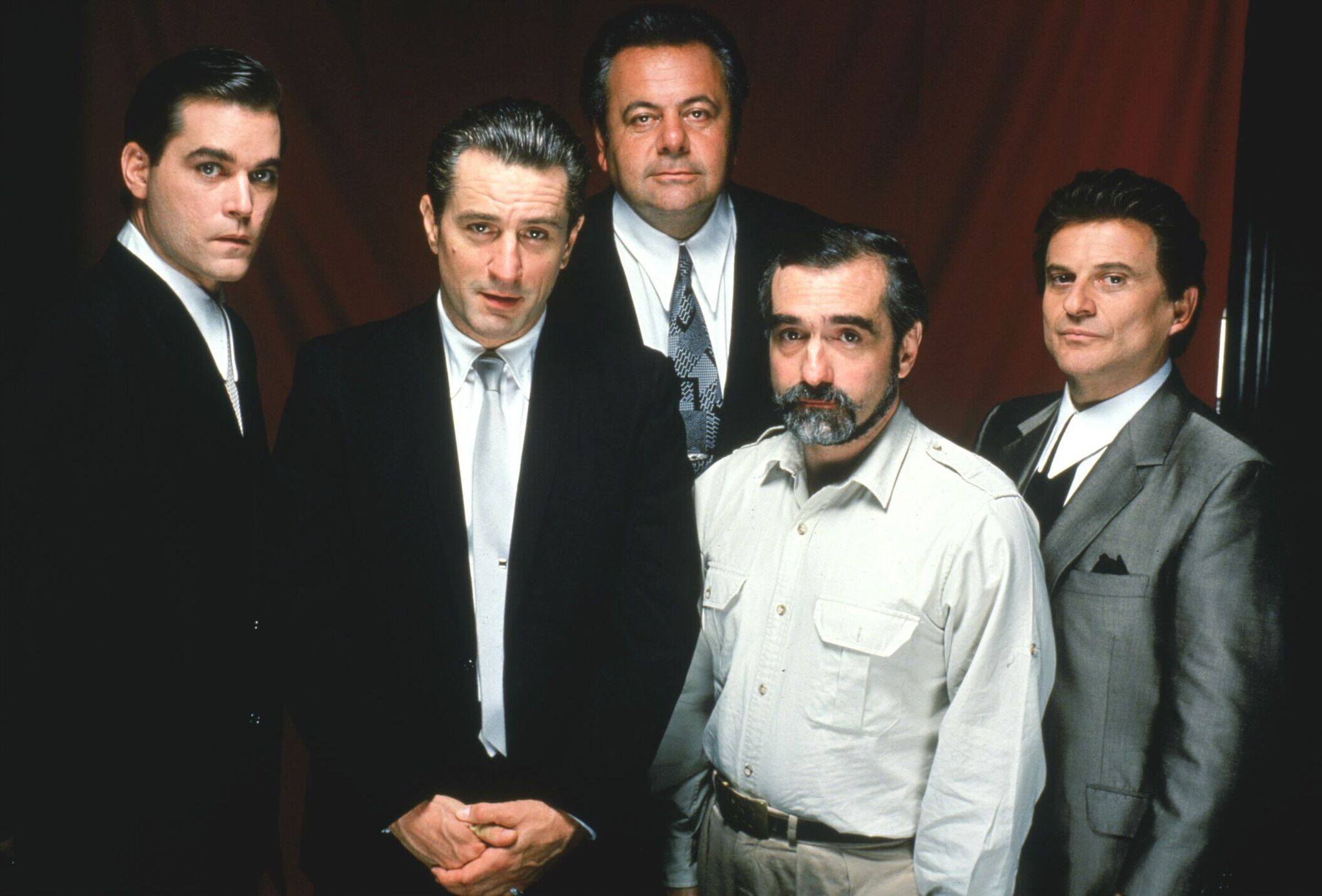Goodfellas – Martin Scorsese (1990)

Directed by Martin Scorsese and released in 1990, “Goodfellas” is a seminal crime drama that remains one of the most acclaimed films in cinematic history. Based on the true story of former mobster turned informant Henry Hill, the film offers a riveting portrayal of organized crime in America from the 1950s through the 1980s. With its stellar cast, expert direction, and groundbreaking narrative style, “Goodfellas” has left an indelible mark on the crime genre and continues to captivate audiences with its raw intensity and uncompromising realism.
The narrative unfolds through the eyes of Henry Hill (played by Ray Liotta), who recounts his rise through the ranks of the mob alongside his friends Jimmy Conway (played by Robert De Niro) and Tommy DeVito (played by Joe Pesci). From his humble beginnings as a young boy fascinated by the glamour and power of the mafia, to his initiation into a life of crime and subsequent descent into betrayal and disillusionment, Henry’s journey serves as a compelling exploration of loyalty, ambition, and the moral compromises inherent in the criminal underworld.

Central to “Goodfellas” is its exploration of the allure and brutality of organized crime. Martin Scorsese’s direction immerses viewers in the seductive world of the mafia, where wealth, status, and violence coexist in a precarious balance. The film juxtaposes moments of exhilarating camaraderie and opulence with scenes of brutal violence and moral decay, portraying the harsh realities of a life governed by loyalty and betrayal.
Ray Liotta delivers a standout performance as Henry Hill, capturing the character’s charm, ambition, and moral ambiguity with nuance and depth. Henry’s transformation from an eager young recruit to a jaded informant on the run underscores the film’s exploration of consequence and the price of ambition in a world where trust is a fragile commodity.

Thematically, “Goodfellas” delves into the cyclical nature of crime and punishment, as Henry and his associates navigate a dangerous labyrinth of power struggles and internal betrayals. Joe Pesci’s portrayal of Tommy DeVito, a volatile and unpredictable mobster prone to fits of violence, adds an unsettling edge to the narrative, highlighting the unpredictability and ruthlessness of mob mentality.
The film’s supporting cast, including Lorraine Bracco as Karen Hill, Henry’s wife, and Paul Sorvino as Paul Cicero, their mentor and mafia boss, enriches the narrative with complex relationships and conflicting loyalties. Karen’s gradual descent into complicity with Henry’s criminal activities and Paul Cicero’s paternalistic yet pragmatic leadership underscore the film’s exploration of the moral compromises faced by those entangled in organized crime.
Visually, “Goodfellas” is a tour de force of cinematic craftsmanship, with its dynamic cinematography, kinetic editing, and iconic tracking shots that propel the narrative forward with relentless momentum. Scorsese’s use of voice-over narration and period-specific soundtrack further enhances the film’s immersive atmosphere, transporting viewers to the streets of New York City and beyond during a pivotal era in American history.

Moreover, “Goodfellas” remains relevant for its timeless exploration of ambition, loyalty, and the consequences of pursuing power at any cost. The film’s unflinching portrayal of crime as a corrosive force that erodes personal ethics and destroys lives resonates with contemporary audiences, offering a cautionary tale about the allure and dangers of pursuing the American Dream through illicit means.
In conclusion, “Goodfellas” (1990) stands as a cinematic masterpiece that continues to captivate audiences with its uncompromising portrayal of crime, consequence, and the human condition. Martin Scorsese’s expert direction, coupled with stellar performances and evocative storytelling, ensures that “Goodfellas” remains a timeless classic that transcends its genre to provoke thought and reflection on the complexities of morality, ambition, and the pursuit of power in a world where loyalty is a currency and betrayal is a constant threat.










